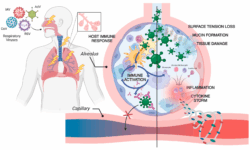Revolutionizing Patient Care with Artificial Intelligence in the UAE
In a significant leap toward the future of healthcare, the Dubai Health Authority (DHA) has officially launched AI-powered diagnostic systems across several public hospitals. This move is part of a larger national vision to integrate cutting-edge technologies into the Emirates’ health infrastructure, making early detection, precision medicine, and patient-centric care more effective and efficient than ever before.
As the UAE races ahead on the global digital innovation index, its healthcare system is quickly becoming a model of what “smart medicine” looks like in the 21st century.
A Vision Aligned with Dubai’s Smart Healthcare Strategy
The deployment of AI diagnostics is closely aligned with the Dubai Health Strategy 2026, which emphasizes innovation, sustainability, and digital transformation. The initiative is not just about technology for technology’s sake—it’s a carefully designed program aimed at:
- Reducing diagnostic errors
- Speeding up disease detection
- Enhancing clinical decision-making
- Optimizing healthcare workflows
- Lowering operational costs
In short, this initiative is expected to shift the healthcare paradigm from reactive to proactive and predictive medicine.
How AI is Transforming Diagnostics in Dubai
Artificial Intelligence (AI) in diagnostics functions by analyzing vast datasets—medical imaging, lab results, patient histories—with unprecedented speed and accuracy. In Dubai’s public hospitals, AI algorithms are now being used in areas like:
- Radiology: AI tools are scanning X-rays, MRIs, and CT scans to detect signs of cancer, fractures, or organ anomalies, often faster than human radiologists.
- Cardiology: Early signs of cardiovascular issues are being flagged using AI, allowing for quicker interventions.
- Pathology: Machine learning is helping analyze biopsy slides and blood work with precise pattern recognition.
- Emergency Care: AI-powered triage systems are prioritizing critical patients based on real-time data.
For example, at Rashid Hospital, the AI-driven chest X-ray analysis tool reduced diagnostic time by over 60%, dramatically improving treatment response time for patients with suspected pneumonia or pulmonary complications.
Benefits Beyond the Diagnosis Room
The ripple effects of AI implementation go far beyond diagnosis. Here’s how public hospitals—and patients—are reaping the rewards:
🔹 Faster Patient Turnaround
With automated scanning and real-time alerts, healthcare providers can address patient needs quicker, reducing wait times and hospital congestion.
🔹 Reduced Burden on Medical Staff
AI doesn’t replace physicians—it supports them. Routine image reading and lab analysis can be handled by algorithms, freeing up doctors to focus on complex clinical decisions.
🔹 Improved Accuracy
AI tools reduce human errors by standardizing interpretations. For instance, AI detected microfractures missed by traditional methods in early testing phases.
🔹 Cost-Efficiency
Fewer unnecessary tests, faster decision-making, and early interventions translate into significant long-term cost savings for the healthcare system.
Collaboration with Global Tech Giants
The DHA has partnered with major international firms, including Siemens Healthineers, GE Healthcare, and Philips, to integrate AI technologies that comply with the UAE’s data security and ethical guidelines.
Moreover, the integration also includes secure cloud-based platforms that allow specialists to access diagnostic information across facilities—enhancing collaboration between primary care physicians and hospital specialists.
Challenges and Ethical Considerations
Of course, integrating AI into public health infrastructure isn’t without its challenges:
- Data Privacy: Ensuring the protection of sensitive medical data is a top concern. DHA’s AI systems are required to meet strict GDPR-like compliance standards.
- Algorithmic Bias: AI tools trained on non-local datasets can carry biases. To combat this, DHA is working with UAE universities to develop region-specific training data.
- Physician Trust and Training: A cultural shift is required as healthcare workers adjust to co-working with AI. Continuous training programs are being rolled out to address this.
Dr. Muna Al Suwaidi, Head of Health Informatics at DHA, notes, “AI should be seen as a digital colleague. Our goal is to build trust and provide tools that amplify—not replace—the expertise of our healthcare professionals.”
Future Plans: Scaling AI Across the Emirates
With successful pilot runs in Dubai, there are ambitious plans to expand AI diagnostics to Sharjah, Ajman, and Ras Al Khaimah in the coming years. DHA also plans to:
- Launch remote AI-assisted diagnostics for rural and under-served populations
- Integrate AI into telemedicine platforms for home-based care
- Use AI analytics to predict public health trends, such as flu outbreaks or chronic disease surges
Additionally, DHA is collaborating with local universities and startups to develop home-grown AI talent and incubate future innovations within the UAE.
A Regional Model for Smart Healthcare
Dubai’s rollout of AI-powered diagnostics places it among the world’s leading smart health cities—alongside Singapore, Seoul, and select cities in the U.S. It sends a powerful message: the Middle East is no longer just adopting global tech trends—it is shaping them.
For everyday citizens, it means faster diagnoses, more accurate treatment, and greater confidence in the healthcare system. For healthcare workers, it’s a step into a future where machines empower, not replace, human expertise.
Final Thoughts
As Dubai continues to evolve into a global hub for innovation, the integration of AI in public health services underscores the emirate’s commitment to healthcare excellence. The DHA’s AI initiative is not just a technological milestone—it’s a promise of smarter, safer, and more accessible healthcare for every resident.
The age of intelligent medicine has arrived—and Dubai is leading the charge.






